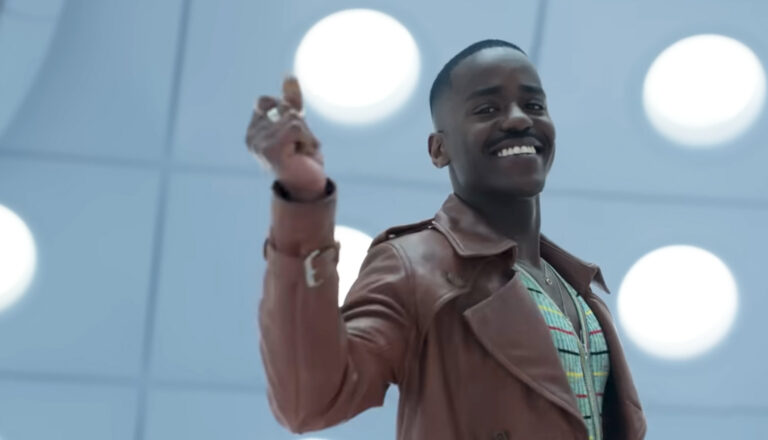
Doctor Who
The good Doctor’s been flitting around time, space and the BBC since 1963. Now he’s also a fixture in the US, toting his curiously British brand of sci-fi in his highly mobile TARDIS. Just how safe is this contraption?
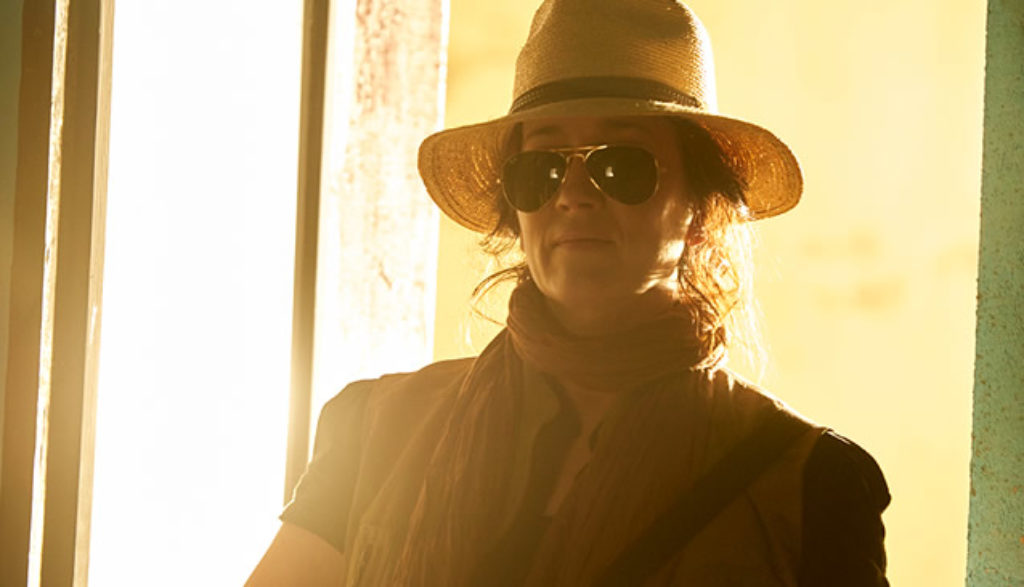
Some people cause their own problems. Others seem like they’re born with them. Sarah Manning is a good example of the latter.
Sarah thought her life was pretty normal—or, as normal as life can be for an amateur con artist. But her perception changed dramatically when she saw her spot-on doppelgänger step in front of a speeding train.
At first, Sarah treats the suicide as a great opportunity. After all, it’s not every day you can so easily assume the identity of another person, complete with bank account and credit cards. But she soon discovers why the dead woman (a Canadian detective) might’ve been struggling. Seems she and Sarah are clones—products of an elaborate biochemistry experiment—and the realization that there could be scores of her walking around might’ve been too much for the woman to handle.
Sarah, even though she’s got the same biological makeup, is made of stronger stuff, it would seem.
Such is the setup of Orphan Black, the weirdest product to come out of Canada since ketchup-flavored potato chips. Airing on Space in the northern provinces and on BBC America in the United States, Orphan Black has earned actress Tatiana Maslany raves for her work as Sarah … and Beth, the suicide-committing detective … and Cosima, the lesbian microbiology student … and Helena, the self-harming Ukrainian clone assassin … and Alison, the Canadian soccer mom … and—
You get the idea. Maslany has played at least eight different clones so far, all genetically alike but wildly different due to upbringing, life experience and the idea that God must like a little diversity, even in clones.
A stretch? Perhaps, but* Orphan Black* doesn’t shy away from such philosophical musings. In fact, it forces viewers to ask what it means to be human at all. The Dyad Institute, the organization behind Sarah and her kin, sees the clones as grand experiments in eugenics—self-guided evolution, as it were—and monitors them all through their supposed best friends and loved ones. Meanwhile, a cult of sorts called the Proletheans believes these clones to be “abominations” in the eyes of God and wants them all dead. The clones themselves struggle, as you might expect, with their own sense of self—even as they meet and befriend one another and, eventually, form their own odd little family.
All that helps turn Orphan Black into a strange yet compelling show—at turns an edge-of-your-seat mystery thriller, quirky comedy and bizarre family drama, with each episode unspooling just a bit more thread for this sprawling, confusing tapestry.
But it also makes for some serious problems. Characters, both clones and non-clones alike, can die in pretty horrible and bloody ways. People are injured and sometimes tortured. Lovers pop in and out of the plot, sometimes participating in graphic sex scenes. Felix, Sarah’s foster brother, is gay and has been known to work as a male prostitute. Cosima is shown in intimate interactions with female lovers. Alison and her husband, Donnie, have started dealing drugs. And language is raw, including unbleeped s-words, among others (based on our review of iTunes episodes).
“Community of Dreadful Fear and Hate”
Alison takes center stage in this episode as she campaigns to become a school trustee and tries to buy her mother’s business from her, which will become a front for her and Donnie’s fledgling, and very illegal, “pharmaceutical” business. Alas, the pair mix up envelopes, giving their drug supplier a pile of campaign signatures while nearly handing election officials $30,000 in cash. (The mix-up nearly costs Donnie his nose.)
Alison’s old flame, Jason, kisses Cosima, thinking it’s Alison. Cosima spends time in bed with her lover, Shay, kissing and touching. Cosima is naked; Shay wears just panties. And we see an exposed thigh and midsection as Shay kisses her hip. Cosima’s shoulders are seen as she sits in a bathtub, blood clouding the water.
In a Mexican bar, Helena threatens and punches Mrs. S several times before Mrs. S finally hits her back—then regrets it and hugs her. Folks there drink beer. We see bags of pills and hear about drug dealing. There’s talking and joking about homosexuality, along with endorsements of alternative lifestyles. Much is made of Cosima needing a urine sample from Alison. Gamblers smoke cigars and play poker while drinking beer and shots. Characters say the s-word at least a half-dozen times, along with “b–ch,” “p—,” “a–” and “bloody.” God’s name is abused a few times, Jesus’ twice.
“Governed as It Were by Chance”
Helena is held in a creepy cult compound, where she’s nearly smothered by the leader’s daughter. “Go back to hell where you belong,” she’s told. But Helena turns the tables, chokes the woman into unconsciousness and escapes.
Sarah’s daughter, Kira, gives her mom a paper “angel” to protect her. But Sarah’s captured by someone bent on torturing her. He crumples up the angel and chains her to a shower to make the “cleanup” easier. He cuts her (blood runs down her neck) before he’s killed (mostly off camera) by Helena—her wedding-white dress drenched in blood. Someone’s smashed in the face with a gun.
Siobhan Sadler encounters an old lover: They kiss and begin to strip in a nightclub hallway. A reference is made to a threesome. There’s talk of cavity searches, a lesbian relationship and other sexual encounters. In flashback, Helena lies on an examination table, where cult members medically violate her (the procedure mostly shielded by her legs). Alison, now in a rehab center, noisily throws up in a toilet. We see her sitting on a toilet, too, generating a urine sample which she hands to someone who’s watching her.
People drink all manner of alcohol. They spout the s-word a dozen times, abuse Jesus’ and God’s names about that same number of times, and use profanities like “h‑‑‑,” “b‑‑ch,” “a‑‑” and “bloody.” Homes are broken into and authorities misled.


Paul Asay has been part of the Plugged In staff since 2007, watching and reviewing roughly 15 quintillion movies and television shows. He’s written for a number of other publications, too, including Time, The Washington Post and Christianity Today. The author of several books, Paul loves to find spirituality in unexpected places, including popular entertainment, and he loves all things superhero. His vices include James Bond films, Mountain Dew and terrible B-grade movies. He’s married, has two children and a neurotic dog, runs marathons on occasion and hopes to someday own his own tuxedo. Feel free to follow him on Twitter @AsayPaul.

The good Doctor’s been flitting around time, space and the BBC since 1963. Now he’s also a fixture in the US, toting his curiously British brand of sci-fi in his highly mobile TARDIS. Just how safe is this contraption?
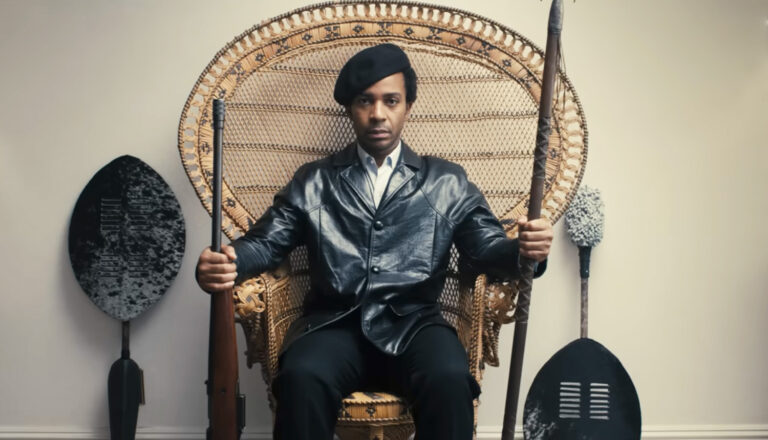
The Big Cigar’s protagonist, Huey P. Newton, founder of the Black Panthers, is suspicious of Hollywood. In that, Plugged In would agree.
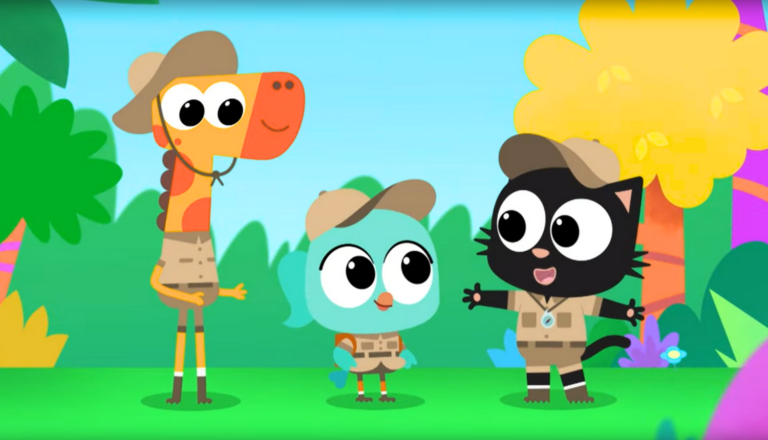
Milo offers great messages about friendship and trying new things, and it’s free of most anything parents would find concerning.
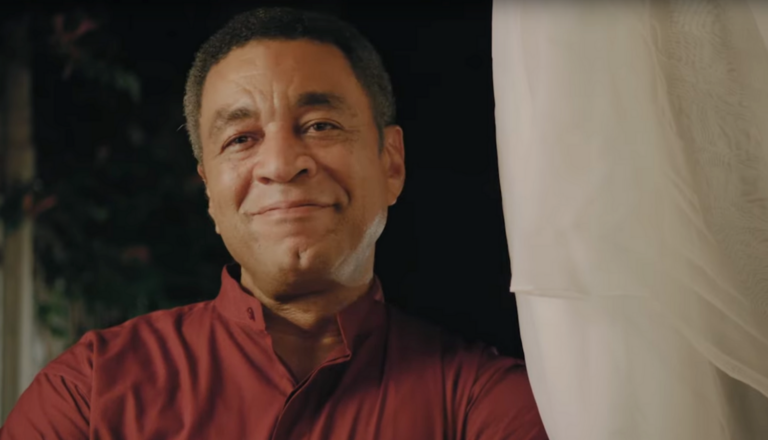
People from all walks of life learn lessons from God Himself that will change their lives.